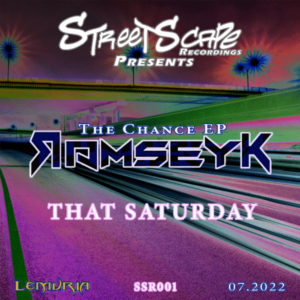
Discovering inspiration for your own unique musical creativity can happen in countless ways.
If you love the beats in 808 songs, learning how they were created is a great way to kickstart your own creative process.
Today, we’re breaking down exactly what classic 808 beats are and how to recreate them.
Let’s dive in.
What is an 808?
808s are specific drum sounds that originally came from Roland TR-808 drum machines. When you hear the terms “808 kick” or “808 snare,” these are references to the TR-808’s percussion sounds.
While 808 drum sounds originated from the TR-808, they can now be replicated through samples, and other drum machines. Replicating classic 808 beats and making new ones is a lot easier than it used to be.
If the TR-808 were a musician, it would be one of the most successful in modern music. It’s considered to be one of the most influential instruments of all time and has been featured on more hit records than any other drum machine.
Though 808 beats are heard almost everywhere in popular music, the TR-808 was actually a commercial failure when it was released in 1980. But throughout the 80s, it quickly became a defining instrument in hip hop and other musical genres.
Instead of samples, the original TR-808 used analog synthesis to generate drum sounds. It was the first instrument to allow users to create percussion tracks from beginning to end. Musicians especially love the 808 for its boomy bass drum sound.
The TR-808 was discontinued in 1983. But luckily, Roland’s TR-8S, other modern drum machines, and samples continue to replicate its iconic drum sounds today.
808 drums and bass
Musical innovators eventually discovered that the 808 wasn’t just good for drum noises but could also create bass sounds. This can be done by tuning and extending the kick drum’s decay to create booming bass tones.
Though 808 beats are heard almost everywhere in popular music, the TR-808 was actually a commercial failure when it was released in 1980.
Today’s DAWs and plugins offer easy ways to replicate this iconic sound, but it was originally created through the 808. It can also be generated through Roland’s TR-8S and other modern drum machines.
How to Program 8 Classic 808 Beats
You don’t need a drum machine to replicate classic 808 patterns. All you have to do is set up a drum rack with 808 samples and input the patterns with MIDI.
You’ll find that some beats are sparse and straightforward, while others are complex. Each of the following classic 808 sequences has a unique story to tell.
1. Marvin Gaye – “Sexual Healing” (1982)
This was the first hit single featuring an 808 beat. It ushered the TR-808 into mainstream music in the sexiest way possible. Gaye’s vocals are a part of this infectious beat.
2. Afrika Bambaataa & Soulsonic Force – “Planet Rock” (1982)
This song is credited for helping to shape early hip hop and inspiring the development of Detroit techno and Miami bass. You could argue this song’s futuristic beat is one of the most influential of all time.
808 State –“Pacific State”(1989)
This influential Manchester electronic group has a reference to the famous drum machine right in their name. They’re responsible for plenty of iconic early uses of the 808 in dance music.
Run DMC – “It’s Tricky” (1987)
Featuring samples of “My Sharona” by The Knack and “Mickey” by Toni Basil, “It’s Trick” is built on a driving 808 beat. The straightforward percussion seems to draw inspiration from the rock music sampled in this track.
Whitney Houston – “I Wanna Dance With Somebody (Who Loves Me” (1987)
Drexciya –“Digital Tsunami” (2001)
Artists in the Detroit techno genrelike Drexciya used 808 beats to build gritty, minimalist electronic tracks.
Outkast – “The Way You Move” (2003)
Blending southern hip hop and soul, the 808 is a prominent feature in this song and is even called out in the lyrics.
Future – “March Madness” (2015)
This track is built on a slinking, metallic trap beat. It and other beats like it show that the 808’s grip on modern music is as tight as ever.
808 forever
Now that you know how to program these incredible classic beats, try creating your own. You can use drum machines or software instruments or samples that mimic the iconic 808 sound.




